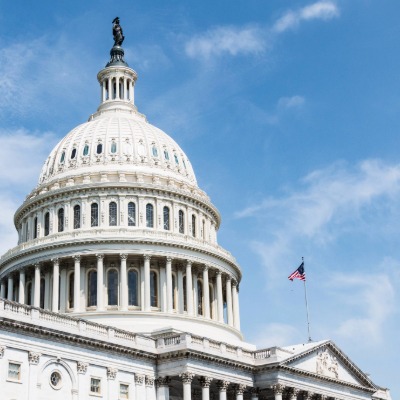One Big Beautiful Bill Moves Forward

The U.S. Senate released its version of the One Big Beautiful Bill Act (OBBBA), unveiling key tax provisions that signal a significant and, perhaps more importantly, permanent step forward in tax law—though much debate still lies ahead.
For the first time in recent memory, taxpayers may finally be able to say goodbye to the uncertainty that has loomed over prior tax reforms, which provided only short-term and otherwise expiring provisions. These shorter-term changes to the income and estate tax code have made long-term strategic planning a significant challenge for taxpayers and business owners alike. Such expiring provisions were not only part of the 2017 Tax Cuts and Jobs Act (TCJA), but have been commonplace in other previously impactful tax legislation, such as in the Taxpayer Relief Act of 1997, the 2001 Economic Growth and Tax Relief Reconciliation Act, and the Tax Hike Prevention Act of 2010.
As expected, the proposed Senate bill makes permanent the current lower federal income tax brackets for all taxpayers, which are set to expire December 31, 2025, under TCJA. The 2025 legislation, however, also enhances several of the tax savings strategies that were set to expire at the end of this year. Notably, the Senate proposal not only makes the doubling of the $2,000 Child Tax Credit permanent but also increases the credit to $2,200 per child starting in 2025 and indexes the enhanced credit for inflation in future years. Similar permanence and enhancements apply to the TCJA’s standard deduction, as well as the 20% Qualified Business Income (QBI) deduction.
OBBBA also introduces several new and widely impactful provisions. These include eliminating federal income tax on tips for millions of tipped workers, removing income tax on overtime pay for hourly workers, and exempting auto loan interest on new U.S.-made vehicles from taxation.

2025 Year-End Tax Guide: Navigating the One Big Beautiful Bill Act
Make the most of the tax code before 2026 changes take effect. Our 2025 Year-End Tax Guide offers a concise checklist. Use it to evaluate your opportunities, coordinate with your tax and financial advisors, and position your portfolio for the years ahead.
On the estate tax front, the bill aims to permanently extend the current federal estate and gift tax exemption, which is scheduled to revert at the end of 2025 to an inflation-adjusted number of around $7 million for single filers. The tax on transfers above this threshold would remain at 40%.
Under the newly issued Senate proposal, the exemption would increase to $15 million for single filers (or $30 million for married couples) beginning in 2026, again with adjustments for inflation every year going forward. The newly found permanency of this extended and enhanced credit for wealth transfer provides the unprecedented ability to engage in much longer-term strategic wealth transfer planning—a welcome relief for estate planning attorneys nationwide.
One area of tension between the Senate and House versions is the SALT deduction cap. The Senate bill would permanently extend the $10,000 cap ($5,000 for married filing separately) on the itemized deduction for state and local taxes, which is set to expire after 2025. This stands in sharp contrast to the House proposal, which raises the cap to $40,000. While Senate negotiators say the figure is a placeholder, the reaction from SALT caucus members has been strong. Rep. Mike Lawler (R-NY), a leading voice on the issue, wrote on X that $40,000 is “the deal” and that he “will not accept a penny less.”
In healthcare, Medicaid provider taxes have become another flashpoint following the release of the Senate text. A key provision would lower the cap on state-directed supplemental Medicaid payments—currently limited to the average commercial rate—to 100% of Medicare rates in Medicaid expansion states and 110% in non-expansion states. The proposal phases in these reductions gradually, cutting existing payments by 10% each year until they meet the new thresholds.
As the Senate pushes forward with OBBBA, these issues—SALT caps, Medicaid funding, and how far to go in making TCJA provisions permanent—are sure to dominate negotiations leading up to the July 4 recess.
Sources:
https://www.axios.com/2025/06/16/senate-gop-one-big-beautiful-bill-text-taxes-medicaid-cuts
https://thehill.com/homenews/house/5353494-salt-caucus-republicans-senate-big-beautiful-bill/
https://x.com/RepMikeLawler/status/1934670158435406159
https://www.marketwatch.com/story/senate-looks-to-cut-1-trillion-from-medicaid-heres-who-would-be-hurt-most-c17ab7a6
https://www.kff.org/medicaid/issue-brief/5-key-facts-about-medicaid-and-provider-taxes/
https://publichealth.jhu.edu/2025/the-potential-impacts-of-cuts-to-medicaid
https://www.youtube.com/watch?v=879gDjf_7Ds
https://www.ruralhealth.us/blogs/2025/04/critical-condition-how-medicaid-cuts-would-reshape-rural-health-care-landscapes
Topchik M, Balfour B, Brown T, Pinette M, Wiesse A. 2025 rural health state of the state. Chartis Center for Rural Health. Published February 11, 2025. Accessed April 3, 2025. https://www.chartis.com/sites/default/files/documents/CCRH%20WP%20-%202025%20Rural%20health%20state%20of%20the%20state_021125.pdf

